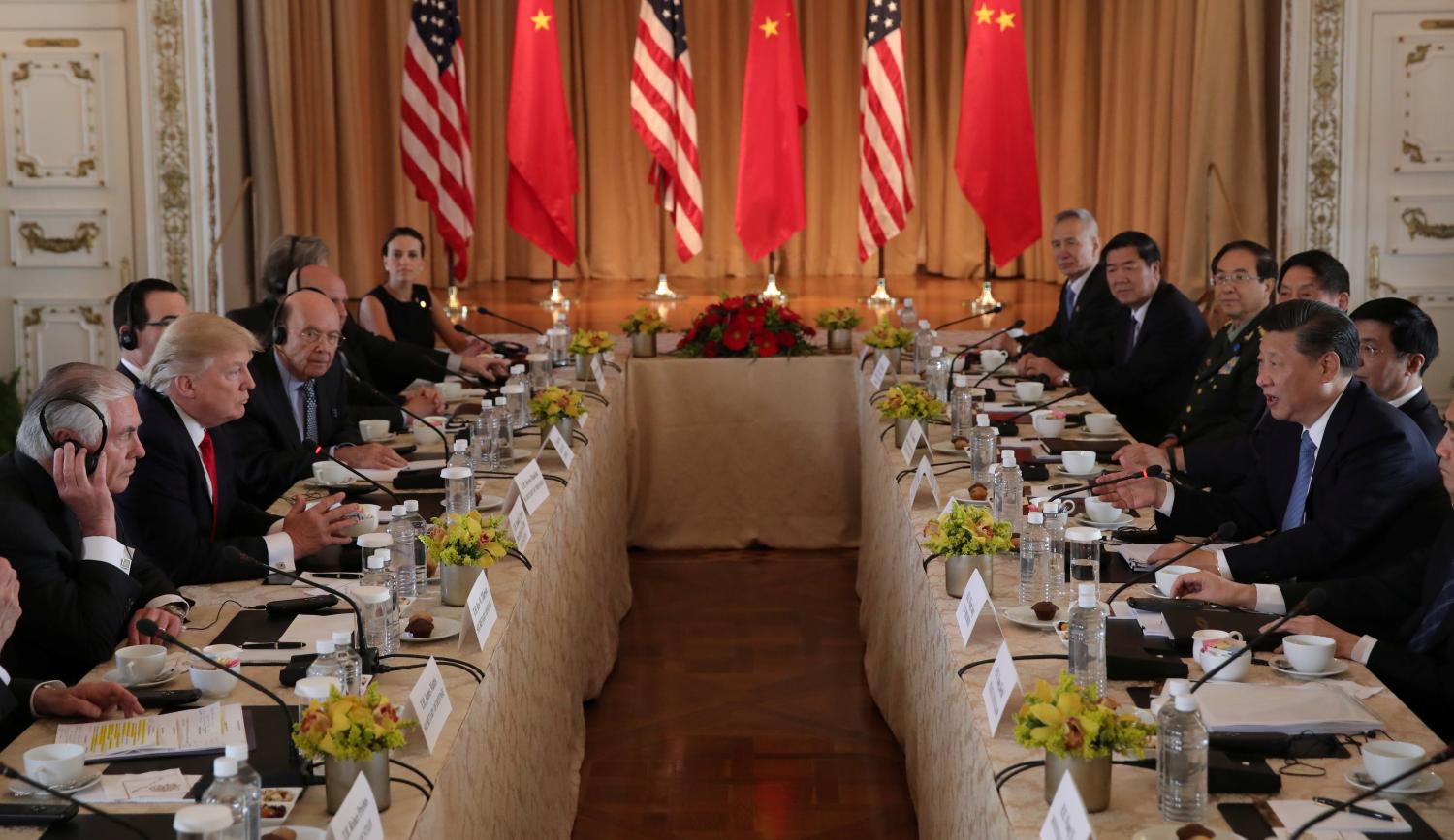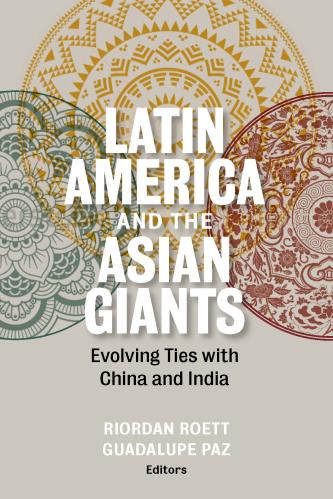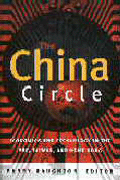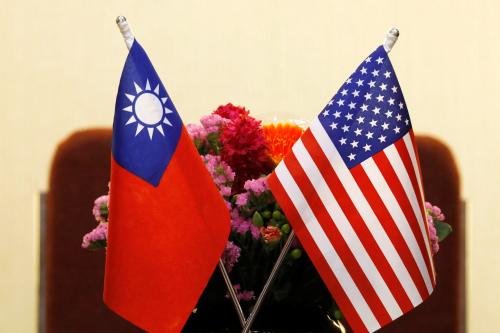I imagine that some people in Taiwan were very happy to read Vice President Michael Pence’s October 4 speech on China. Pence condemned China for stealing away Taiwan’s diplomatic partners and criticized its pressure on some American companies regarding the terminology they used to refer to the island. He spoke positively about Taiwan’s “embrace of democracy” and the example it set for “all the Chinese people.”
But Taiwan observers were probably equally attentive to the vice president’s description of the U.S.-China relationship as fundamentally competitive. For example, Pence cited the new era of “great power competition” as outlined in the National Security Strategy. With specific reference to China, he said that President Trump “will not back down—and the American people will not be swayed. We will continue to stand strong for our security and our economy, even as we hope for improved relations with Beijing.”
At least some observers in East Asia, not just Taiwan, will conclude that U.S.-China relations will take on a zero-sum, “you live, I die” character, with implications for everyone in the region. China would have a lot to lose from all-out competition with America, but U.S. allies and partners in the region also might be at risk from both the current trade war and from wider Washington-Beijing rivalry.
Taiwan might become a victim of “friendly fire” in a U.S.-China trade war.
Taiwan’s situation is particularly complex. Since the early 1990s, Taiwan has sustained economic growth and prosperity by exporting to the mainland China market and by becoming a key link in supply and value chains that run from the United States, through Taiwan, and into China, where final production and assembly takes place. But for purposes of U.S. customs, the finished products are treated as Chinese goods, so a U.S. decision to increase tariffs on those goods would hurt the Taiwan companies and perhaps wipe out the narrow profit margins on which they operate. Given its dependence on the China market, Taiwan might become a victim of “friendly fire” in a U.S.-China trade war.
When it comes to political and security affairs, some in Taiwan will see an advantage if U.S.-China relations become competitive and zero-sum. They assume that Taiwan is in its own zero-sum contest with China, so anything that hurts China in its contest with America will be a gain for Taiwan. Moreover, they likely believe that a downturn in U.S.-China relations is the best time for Taiwan to seek benefits that Washington was previously unwilling to grant. If previous administrations chose not to extend those benefits because it badly needed Beijing’s cooperation on issues like North Korea, Iran, and climate change, the reduction or disappearance of cooperation would obviate the need for American restraint on Taiwan.
There are reasons, however, for people in Taiwan to wait and see about the direction of U.S. policy towards China and Taiwan. First of all, it remains to be seen just how far the Trump administration is prepared to go in competing with China. Concerning the economic relationship, we cannot rule out the possibility that after the midterm elections the Trump administration will accept modest concessions from China and declare victory, as it did on the revisions to the Korea-U.S. Free Trade Agreement and NAFTA. The administration is correct to challenge China’s industrial policies. Yet whether imposing mounting tariffs on Chinese goods was the best way to do that and whether Washington is prepared to engage in full-scale battle remain to be seen. And if the trade war continues, Taiwan may not be able to avoid becoming collateral damage.
On North Korea, the Trump administration states that denuclearization is still its fundamental goal, and it has always believed that cooperation with China will be essential to achieving that goal. Trump’s prioritization on North Korea could constrain how far he will take the United States down the path of confrontation with China.
Second, it is important for friends in Taiwan to understand how the Trump administration’s policy process can affect its policies.
- It is true that Congress is on Taiwan’s side, but the legislation it has passed so far encouraging enhanced diplomatic and military interaction is not binding. It does not require the president to do anything he may prefer not to do.
- It is also true that U.S. national security officials wish to broaden and deepen the relationship with Taiwan, in order to enhance its deterrent against China.
- On the other hand, the Office of the U.S. Trade Representative continues to hold that Taiwan reneged on certain commitments regarding market access for American beef and pork, and that those must be resolved before discussions will begin on topics of interest to Taiwan.
Finally, there is the president of the United States. President-elect Trump did have a phone call with President Tsai Ing-wen on December 2, 2016—a highly unusual and controversial move that observers said violated the United States’ one-China policy. Nine days later, however, he talked as if he wanted to use Taiwan merely as leverage against China on trade and North Korea.
Thereafter, it seems that Mr. Trump has been willing to defer to China’s President Xi Jinping on matters concerning Taiwan. In a September 6 column in the Washington Post, Josh Rogin reported this statement from a “senior administration official”: “This administration, from a personnel perspective, has the most hawkish Taiwan team ever…But if Xi calls [Donald Trump] and complains, the president’s instinct is to defer to that because there is always some pending issue in which we want something from the Chinese.”
Finally, there is some question about President Trump’s personal commitment to Taiwan’s security. In “Fear: Trump in the White House,” Bob Woodward’s account of the first year of the administration, Woodward recounts a January 19, 2018, meeting at the White House where Trump and his national security team discussed—not for the first time—the rationale for the United States defending allies and partners. The president first asked, “What do we get by maintaining a massive military presence in the Korean Peninsula?” He then asked, “Even more than that, what do we get from protecting Taiwan?”
In principle, it is actually a good thing that the president of the United States wants to understand the reasons for the security commitments that Washington has undertaken. Other presidents have probably asked similar questions. But the context for Trump’s query is his narrow cost-benefit approach to pledging to defend other countries. As amply detailed by my colleague Thomas Wright, Trump has long believed that the United States gets a very raw deal from its security commitments. The countries concerned run trade surpluses with America and their governments do not pay enough to compensate Washington for being willing to defend them. Trump’s view of these relationships is misguided. There are complex reasons for U.S. trade deficits with Asian economies (they don’t constitute “theft”) and U.S. defense relationships in the region actually contribute to American security rather than detract from it. But as recently as October 9, Trump said: “We’ve got 32,000 soldiers over there [in South Korea]. Thank you very much. They don’t pay us.”
What is the bottom line here? First, the Trump administration has clearly decided in words and deeds to approach China in a more competitive manner. Second, it is way too early to know the scope, duration, and implications of this struggle. Third, even if U.S.-China relations became a zero-sum struggle, Taiwan won’t necessarily and automatically be the beneficiary. Fourth, U.S.-Taiwan relations are in good shape because they have been addressed on its own merits, something that should continue. Fifth, Taiwan should focus not only on shifts in U.S. policy but also and how changes in the process of policy formulation affect policy.
The Brookings Institution is committed to quality, independence, and impact.
We are supported by a diverse array of funders. In line with our values and policies, each Brookings publication represents the sole views of its author(s).










Commentary
What Taiwan can take from Mike Pence’s speech on China
October 12, 2018